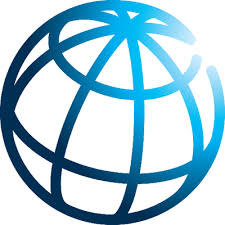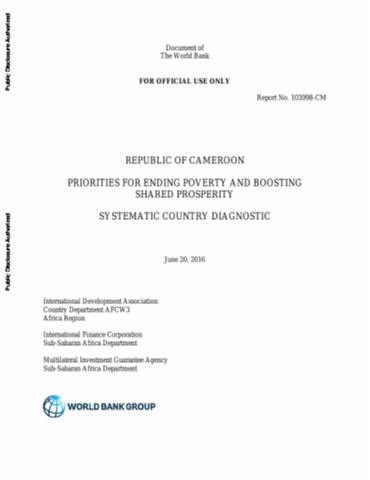The World Bank is a vital source of financial and technical assistance to developing countries around the world. We are not a bank in the ordinary sense but a unique partnership to reduce poverty and support development. The World Bank Group has two ambitious goals: End extreme poverty within a generation and boost shared prosperity.
- To end extreme poverty, the Bank's goal is to decrease the percentage of people living on less than $1.25 a day to no more than 3% by 2030.
- To promote shared prosperity, the goal is to promote income growth of the bottom 40% of the population in each country.
The World Bank Group comprises five institutions managed by their member countries.
The World Bank Group and Land: Working to protect the rights of existing land users and to help secure benefits for smallholder farmers
The World Bank (IBRD and IDA) interacts primarily with governments to increase agricultural productivity, strengthen land tenure policies and improve land governance. More than 90% of the World Bank’s agriculture portfolio focuses on the productivity and access to markets by small holder farmers. Ten percent of our projects focus on the governance of land tenure.
Similarly, investments by the International Finance Corporation (IFC), the World Bank Group’s private sector arm, including those in larger scale enterprises, overwhelmingly support smallholder farmers through improved access to finance, inputs and markets, and as direct suppliers. IFC invests in environmentally and socially sustainable private enterprises in all parts of the value chain (inputs such as irrigation and fertilizers, primary production, processing, transport and storage, traders, and risk management facilities including weather/crop insurance, warehouse financing, etc
For more information, visit the World Bank Group and land and food security (https://www.worldbank.org/en/topic/agriculture/brief/land-and-food-security1
Resources
Displaying 296 - 300 of 4906Montenegro Achieving Sustainable and Inclusive Growth Amidst High Volatility
This Systematic County Diagnostics is
organized into six parts. The first part presents a brief
overview of the country’s recent socio-political and
economic context. The second part examines the links between
poverty, income distribution and economic growth, through
the labor market, against the background of large changes in
international capital flows and the unfinished structural
reform agenda. The third part, examines the sustainability
Montenegro Financial Sector Assessment Program
This technical note discusses the
current status of banking supervision and regulation in
Montenegro in the context of select Basel Core Principles
(BCP). This note has been prepared as part of a Financial
Sector Assessment Program (FSAP) update conducted jointly by
the International Monetary Fund (IMF) and World Bank (WB) in
September 2015. As agreed with the authorities, the FSAP tea
Bhutan Macroeconomic and Public Finance Policy Note
Bhutan’s hydropower generation potential
raises the prospect of tremendous development opportunities
for the country: fast increasing export revenue, sustained
economic growth, and rapid poverty reduction. Driven by
developments in the hydropower sector, the country has grown
at an average rate of 7 percent per year over the last
decade, while poverty has declined remarkably fast. But
hydropower development also creates significant challenges
Perspectives urbaines: villes émergentes pour un Sénégal émergent
Source: Afrik.com
Dans un nouveau rapport, deux experts de la Banque mondiale (Salim ROUHANA et Dina Nirina RANARIFIDY- spécialistes en développement urbain ) analysent l’évolution du paysage urbain sénégalais.
Republic of Cameroon
Cameroon is a lower-middle income country with social indicators and levels of poverty which are below those for comparator countries. Large and rising inequalities between north and south, inefficiencies in public resource allocation and an adverse business environment explain this. While insecurity due to Boko Haram activities and rapidly rising public debt constrain efforts at poverty reduction, there exists a huge potential for economic growth and poverty reduction. This potential remains mostly untapped.








